Hepatic Care Tablets for Dogs: The Complete Guide to Liver Health, Dosage, and Safety
In dogs, the liver serves multiple vital functions—including detoxification, metabolic regulation, digestive enzyme production, and immune system support. When liver function is compromised—due to disease, toxins, medications, or age-related decline—it can significantly affect your dog’s overall health. Hepatic Care Tablets are specifically formulated to protect and restore liver function in dogs.
we will explore the therapeutic indications, composition, mechanisms of action, detailed dosage information, safety profile, and clinical benefits of Hepa Support tablets for dogs. Whether your pet suffers from chronic liver disease, elevated liver enzymes, or needs support during medication therapy, this article offers practical insights and scientifically backed recommendations.
What Are Hepatic Care Tablets for Dogs?
Hepatic Care Tablets are veterinary nutraceuticals designed to maintain and enhance liver function in dogs. They are commonly used as an adjunct to prescribed liver medications or as a standalone supplement in dogs with mild to moderate hepatic compromise.
Composition of Hepatic Care Tablets
Each Hepatic Care Tablets typically contains a synergistic blend of the following active ingredients:
- S-Adenosylmethionine (SAMe): Promotes liver cell regeneration and increases glutathione levels.
- Silymarin (Milk Thistle Extract): Antioxidant that protects liver cells from toxins and inflammation.
- Vitamin E contributes to liver protection by preventing cellular damage from toxins and stress.
- Zinc: Supports hepatic detoxification and immune function.
- N-Acetylcysteine (NAC): Enhances production of glutathione and protects liver from oxidative stress.
- Artichoke Extract: Stimulates bile flow and aids digestion.
Conditions Treated with Hepatic Care Tablets in Dogs
Hepatic Care Tablets are a cornerstone supplement in veterinary hepatology. Their role spans across numerous hepatic disorders—ranging from early dysfunction to end-stage liver disease—due to their blend of antioxidants, hepatoprotectants, and metabolic cofactors.
1. Chronic Hepatitis
- Cause: Immune-mediated, infectious, copper-associated, or idiopathic.
- Why Hepa Support Helps: SAMe and silymarin support regeneration and reduce oxidative stress. Antioxidants buffer inflammatory processes that worsen hepatocellular damage.
- Expected Benefit: Improved clinical signs (e.g., appetite, energy), stabilized liver enzymes, slowed fibrosis.
2. Elevated Liver Enzymes (ALT, AST, ALP, GGT)
- Cause: Early indication of hepatocellular injury, often asymptomatic.
- Why Hepa Support Helps: Promotes enzymatic normalization by restoring hepatocyte integrity and improving detoxification.
- Expected Benefit: Reduction in enzymes to near-reference range within weeks of consistent use.
3. Drug-Induced Hepatotoxicity (NSAIDs, Phenobarbital, Antibiotics, Chemotherapy)
- Cause: Adverse reaction to long-term medications that burden hepatic metabolism.
- Why Hepa Support Helps: SAMe and NAC promote glutathione synthesis, critical for detoxification of reactive drug metabolites.
- Expected Benefit: Faster hepatic recovery, prevention of chronic hepatic damage during long-term therapies.
4. Hepatic Lipidosis (Fatty Liver Disease)
- Cause: Often secondary to anorexia in small or obese dogs, causing lipid accumulation.
- Why Hepa Support Helps: Enhances lipid metabolism, improves bile flow (artichoke extract), and reduces inflammation.
- Expected Benefit: Reduced liver size, improved bile parameters, enhanced appetite.
5. Liver Cirrhosis or Fibrosis
- Cause: End-stage progression of chronic liver damage.
- Why Hepa Support Helps: Protects residual hepatocytes, limits oxidative injury, and supports fibrosis modulation via immune-regulatory effects.
- Expected Benefit: Symptom management, slower disease progression, improved comfort and energy.
6. Congenital Liver Conditions (e.g., Microvascular Dysplasia, Portosystemic Shunt)
- Cause: Malformation of hepatic vasculature leading to poor detoxification.
- Why Hepa Support Helps: Assists in supporting liver metabolism and filtering functions in underdeveloped hepatic tissue.
- Expected Benefit: Decreased neurologic symptoms, improved ammonia processing, support before or after surgery.
7. Toxin Exposure (Aflatoxin, Mycotoxins, Xylitol, Heavy Metals, Plants)
- Cause: Acute or chronic ingestion of hepatotoxins.
- Why Hepa Support Helps: NAC replenishes glutathione to counteract toxin-induced oxidative injury.
- Expected Benefit: Shortens recovery time, prevents permanent damage, and supports detoxification systems.
8. Pre- and Post-Surgical Liver Stress (e.g., Anesthesia, Biopsies)
- Cause: Increased hepatic workload and inflammatory stress around surgery.
- Why Hepa Support Helps: Strengthens hepatocytes, enhances detoxification, and supports cellular repair.
- Expected Benefit: Reduced post-op enzyme spikes, faster recovery.
9. Age-Related Liver Degeneration
- Cause: Natural decline in hepatic function in senior dogs.
- Why Hepa Support Helps: Provides essential antioxidants (Vitamin E, SAMe), boosts mitochondrial function, and supports enzymatic defense.
- Expected Benefit: Improved energy levels, appetite, and reduction in age-associated enzyme fluctuations.
10. Supportive Therapy with Hepatic Diets
- Cause: Nutritional management of liver disease often requires additional supplementation.
- Why Hepa Support Helps: Complements hepatic diets by supplying cofactors and ingredients not always included in food.
- Expected Benefit: Optimized liver recovery and nutritional balance.
Complete Dosage and Administration Guide for Hepatic Care Tablets
Administering Hepatic Care Tablets correctly ensures optimal liver protection and recovery. Dosage depends on your dog’s weight, severity of liver condition, and response to treatment. Here’s a detailed guide to ensure safe and proper usage.
| Dog Weight | Daily Dose Recommendation | Administration Tips |
| Up to 5 kg | ¼ to ½ tablet once daily | Crush and mix with food if needed for ease of intake |
| 5.1 – 10 kg | ½ to 1 tablet once daily | Give with or after meals to enhance absorption and reduce GI discomfort |
| 10.1 – 20 kg | 1 tablet once or twice daily | For divided doses, give AM and PM to maintain stable levels |
| 20.1 – 30 kg | 1½ to 2 tablets daily | Monitor liver enzymes during first month for dosage adjustment |
| Over 30 kg | 2 to 3 tablets daily | Larger dogs may need titration based on enzyme response and vet advice |
Veterinarian guidance is essential, especially in dogs with advanced hepatic disease, on polypharmacy, or those showing irregular lab values.
How to Administer Hepatic Care Tablets
- With food: Always administer with a meal to improve absorption and reduce the chance of gastrointestinal upset.
- Crushing: Tablets may be crushed and hidden in wet food, broth, or treat pastes for picky eaters.
- Splitting doses: For dogs requiring two or more tablets, split dosing (morning/evening) can reduce digestive stress and maintain better nutrient levels throughout the day.
- Flavoring: Some tablets come with palatable flavoring. For unflavored varieties, use pill pockets if needed.
Missed Dose Protocol
- If a dose is skipped accidentally, provide it immediately after realizing.
- If the next dose is due shortly, continue with the regular schedule and skip the missed one.
- Do not double dose. Such use may result in increased gastrointestinal irritation without enhancing effectiveness.
Mechanism of Action
Hepa Support tablets work through multiple mechanisms:
- Regeneration: SAMe promotes synthesis of glutathione, supporting liver detoxification and regeneration.
- Protection: Silymarin stabilizes hepatocyte membranes and acts as an anti-inflammatory agent.
- Antioxidant Protection: Vitamin E and NAC help neutralize damaging free radicals.
- Bile Support: Artichoke extract stimulates bile secretion and aids in fat breakdown.
- Immune Modulation: Zinc helps regulate immune response within liver tissues.
Potential Side Effects and Safety Overview of Hepatic Care Tablets
Hepatic Care Tablets are generally regarded as safe and well tolerated by most dogs. However, as with any supplement, individual responses may vary, and some pets may exhibit mild or temporary side effects. Understanding these effects and proper management ensures optimal safety and compliance.
Common Side Effects
| Side Effect | Frequency | Description | Recommended Action |
| Gastrointestinal upset | Occasional | Includes vomiting, soft stools, or flatulence | Administer with food; reduce dose temporarily if needed |
| Appetite changes | Rare | Reduced interest in food (usually short-lived) | Monitor closely; offer palatable meals or treats |
| Mild lethargy | Rare | Slight tiredness during early days of supplementation | Typically resolves as the body adjusts |
| Hypersensitivity reaction | Very rare | Itching, facial swelling, hives, or gastrointestinal distress | Discontinue use and consult a veterinarian immediately |
Drug and Condition Interactions
- Medication interactions: Should be used with caution in dogs on other hepatically metabolized medications. Always inform your vet of all current drugs.
- Advanced liver failure: Requires professional dosing and monitoring.
- Pregnancy/lactation: Not recommended unless specifically prescribed.
Veterinary Monitoring
For long-term use or dogs with existing liver conditions, periodic monitoring may include:
- Liver function tests (ALT, AST, ALP, GGT)
- Total bilirubin and bile acids
- Complete blood count (CBC) and chemistry panel
Routine evaluations allow timely adjustments and ensure continued safety.
Safety Tip: If your dog is starting Hepa Support after experiencing drug-induced liver injury, closely monitor response within the first 2 weeks.
Clinical Studies and Research
Studies have confirmed that supplementation with SAMe and silymarin can significantly improve liver performance and reduce enzyme markers in dogs with hepatic issues. Clinical trials suggest that consistent use of these supplements may:
- Reduce liver enzyme levels (ALT, AST, ALP)
- Improve survival rates in cases of hepatotoxicity
Conclusion
Hepatic Care Tablets offer a comprehensive approach to managing and supporting liver health in dogs. Their scientifically backed ingredients work synergistically to detoxify, protect, and regenerate liver cells, making them a valuable part of any canine hepatic care plan. With proper dosing and veterinary oversight, Hepa Support can significantly improve outcomes in dogs with liver conditions and provide essential support for long-term health.Whether your dog is recovering from liver injury, managing chronic disease, or simply aging, Hepa Support is a trusted supplement to promote hepatic vitality and improve quality of life.







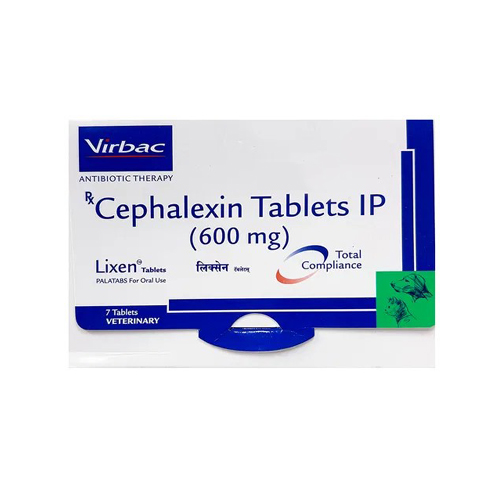
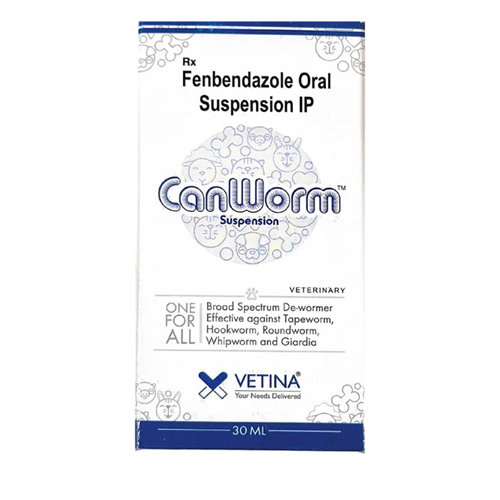


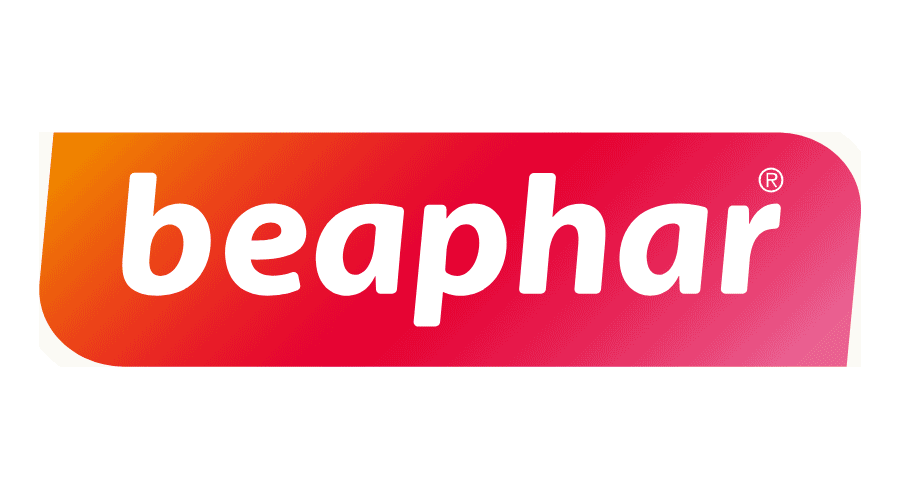
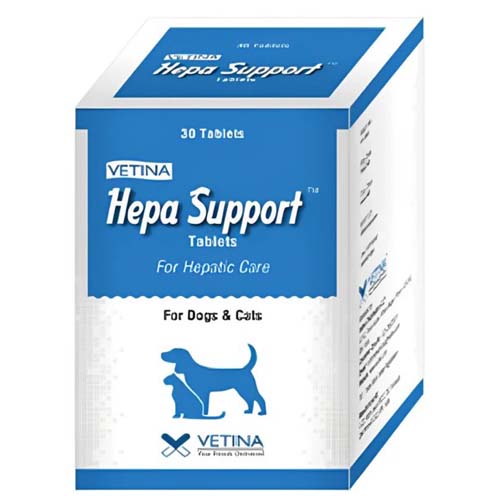
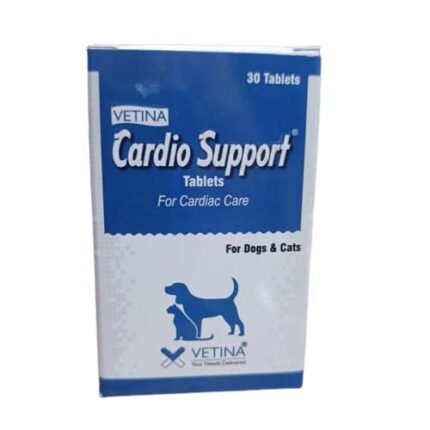
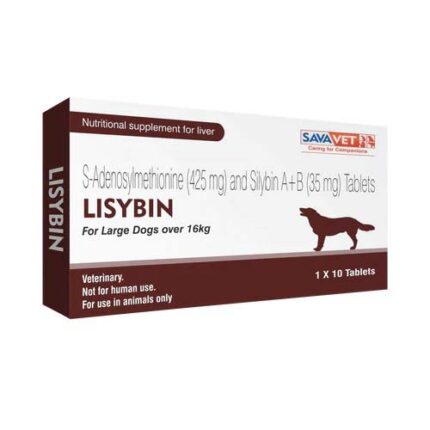
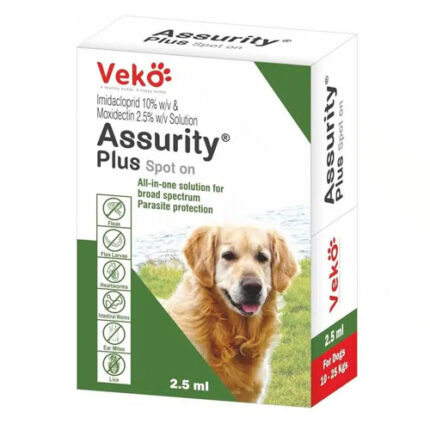
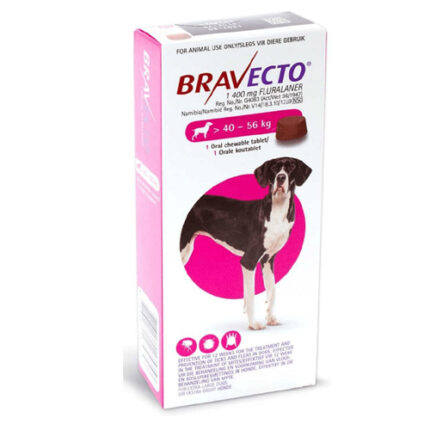
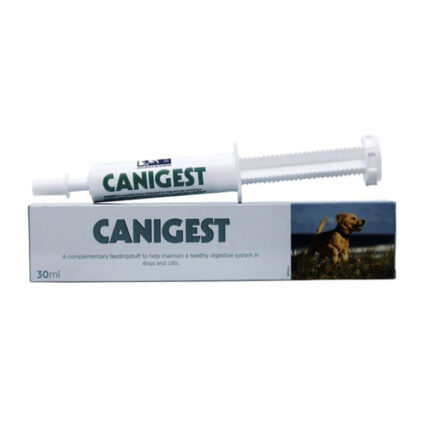
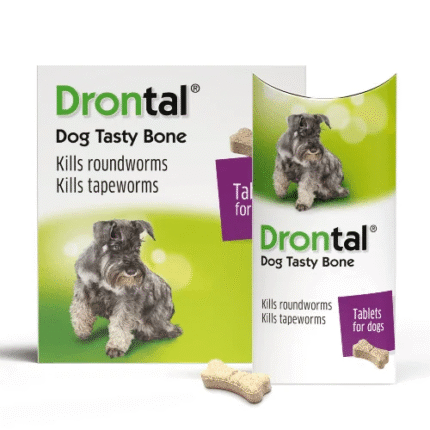
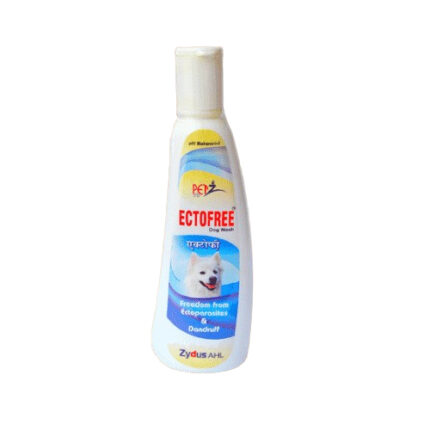
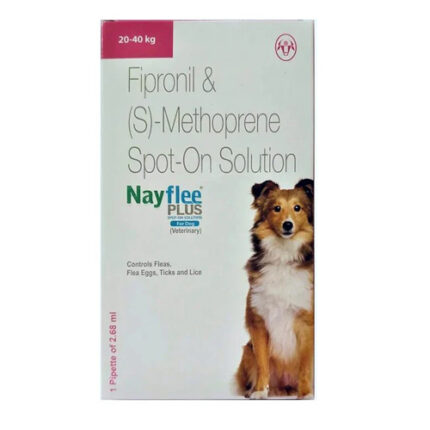
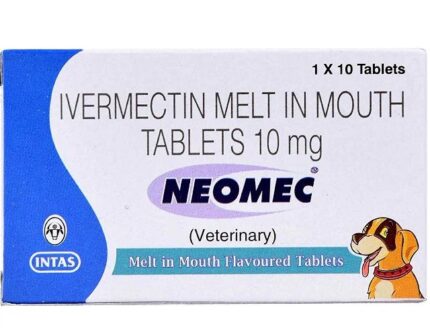
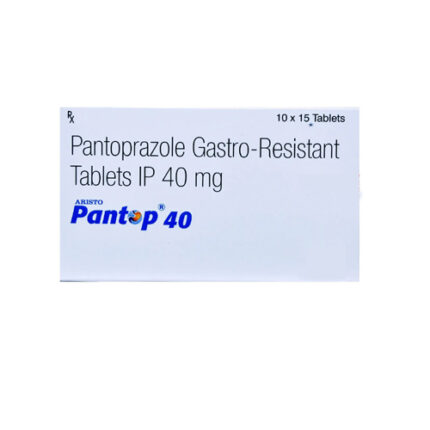
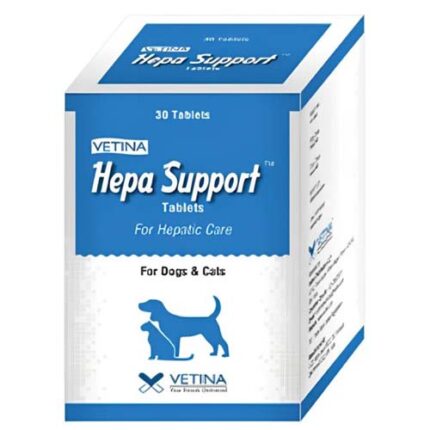
Reviews
There are no reviews yet.